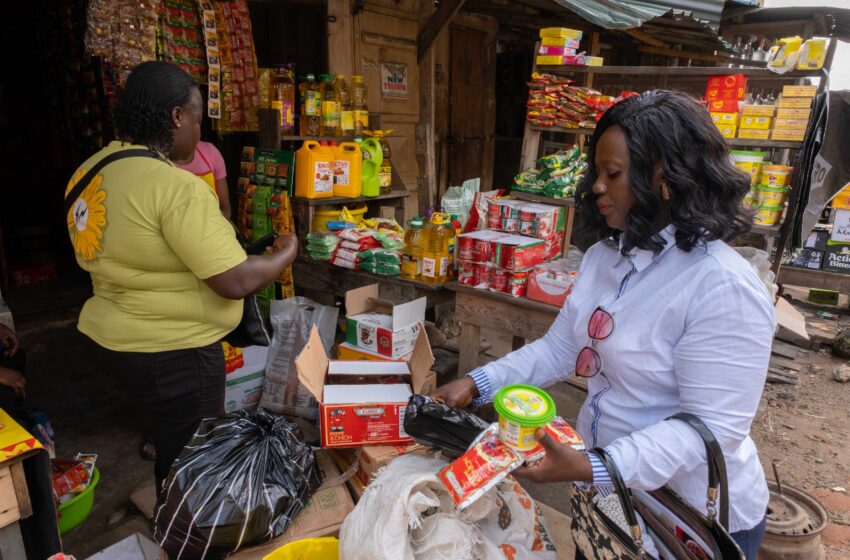SPECIAL REPORT: How families are coping amid Nigeria’s biting inflation

By Genevieve Aningo
The cost of living in Nigeria keeps soaring daily. Like a radar with no control, each day has its own added cost different from the previous one. The differences in prices of commodities a year ago and this year are wide. This has left several Nigerians in sad situations.
In the month of July, for instance, the inflation index in Nigeria, according to the National Bureau of Statistics (NBS) surged to 19.64%.
This shows a swift scale up just from that of June which stood at 18.6%.
In January — which is about seven months ago — the country’s inflation index was 15.6%
The inflating economy has hiked Nigeria’s misery index to 62.79% in July 2022 when compared to 59.4% in December 2021. This statistic shows that living in Nigeria now comes with increased hardship which can lead to social unrest, if not resolved. According to a report, Nigeria’s food inflation rate is currently at 22.02%.
INFLATION: CAUSES AND IMPLICATIONS
Economy experts who spoke to CRISPNG explain why the country’s inflation index keeps rising and the implications for Nigerians.
Professor Leo Ukpong, an economist in one of the country’s top institutions, attributed rising inflation in the country to Nigerians’ dependence on imported goods, rising cost of petrol and incessant borrowing from the government.
He said: “The current rise in inflation is caused by several factors of which some are important. They are the rising cost of petrol (PMS) which is attributed to the high cost of fuel subsidy, the cost of borrowing has gone up because of the continuous high budget deficit, and the high demand for imported food which ends up driving the demand for foreign currency “.
Leo said to address the rising inflation, the government has to increase Nigeria’s capacity to manufacture local goods, build a refinery for crude oil and eliminate corruption in public offices.
According to him, the ballooning inflation index has left many citizens and families incapacitated to meet the increased cost of living. He further noted that most families are struggling to provide two square meals per day and with the high-interest rates in banks; most families do not have the ability to either borrow or pay back past loans.
Leo advised that families must cut down from buying things they don’t need and use their financial reserve; if available, to start a small business.
“Frankly the average family is between a hard place and a rock. If they have some financial reserves, they should also think of starting a small business to help bring in a subsidiary income,” he added.
Also speaking, Segun Ajibola, a professor of Economics at Babcock University and former President Chartered Institute of Bankers of Nigeria (CIBN), said the country’s inflation rate is a “cost-push” one.
His words: “Ours is cost-push inflation occasioned by the rising cost of production inputs in all sectors of the economy, thereby fueling the rise in the prices of consumer goods. The depreciation in the value of Naira, increase in prices of basic infrastructures have all pressured the cost of production, and producers have no choice other than to pass on the increase to the ultimate consumers”.
The professor of economics said fixed income earners are adversely affected by the development because inflation decreases their financial status.
“Those on fixed incomes, depositors, pensioners, etc are always ready victims of the devastating effects of inflation. Inflation can push more of the populace to poverty and want and stifle government attempts at lifting more of those below the poverty line out of poverty,” he added.
On the way out, Segun said for Nigerians to scale through, the country must alter its dependency on imported goods and rely on local production.
“If there is less reliance on imported inflation, it will curb the impact of imported inflation on the economy. Likewise, we must continue to work on the ease of doing business, do everything to reduce the cost of energy, etc. By doing so, Nigeria will be able to stem the tide of this monster. This must be done fast so that we can checkmate a more worrisome situation of economic recession amidst inflation and drive away the scary twin evils of inflation and unemployment in our midst” he said.
THE NEW NORMAL
Reacting to the discourse, Mrs Cynthia Opara, a teacher with Nigerian Navy School Lagos, urged couples to team up in handling household expenses due to the bitting impact of inflation.
“My take is both parents should have something doing so as to augment rather than leaving all expenses to a parent. Cut down on unnecessary spending, impress no one, spend only on necessity and consumables,” she said.
Similarly, Ukwueze Ogochukwu, a lecturer at the University of Nigeria, Nsukka (UNN) lamented that his once “fat salary has grown lean” due to the increased cost of living.
He said: “My pay is no longer strong enough to beat the rising cost of goods and services in the country. If only salaries can be swiftly adjusted in tandem with the wave of inflation like obtainable in other countries, I think I will be fine. To cope, I considered ‘side hustles’, one of them: language proficiency test preparations. I do some other related jobs like editing and proofreading”.
In the same vein, Engineer Akusu Justin detailed how inflation has affected him. He told CRISPNG that he has to cut off a lot of his engagements to stay afloat.
“I have to cut a whole lot of things I was engaging in to stay afloat. I rarely travel now. I eat normally but I don’t do outdoors as much as I would love.”

